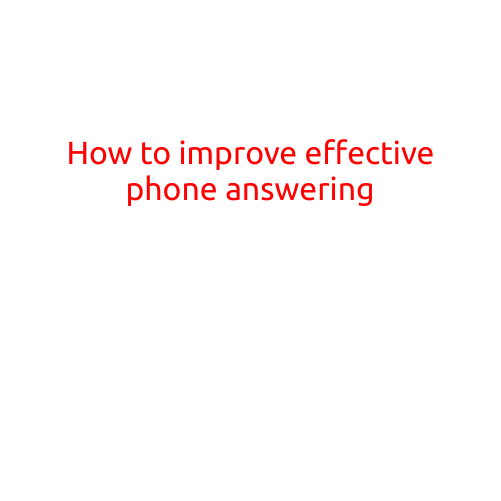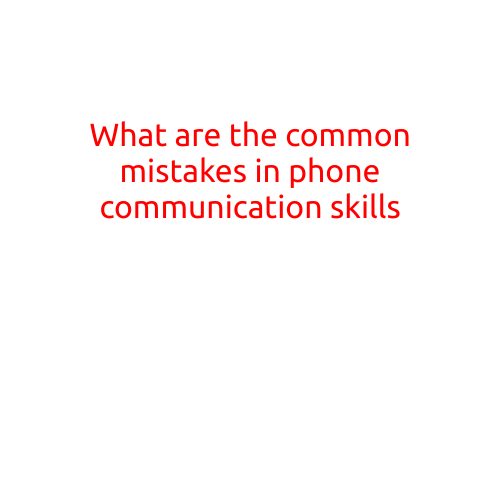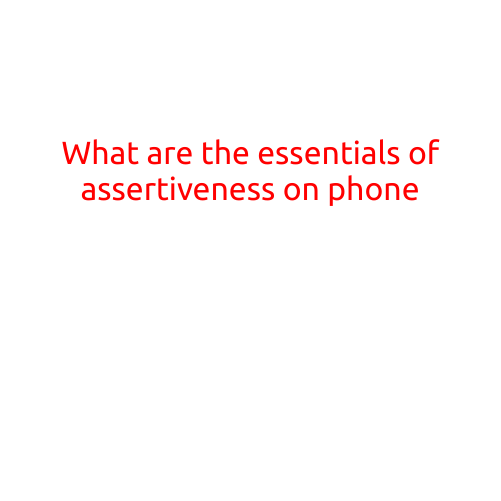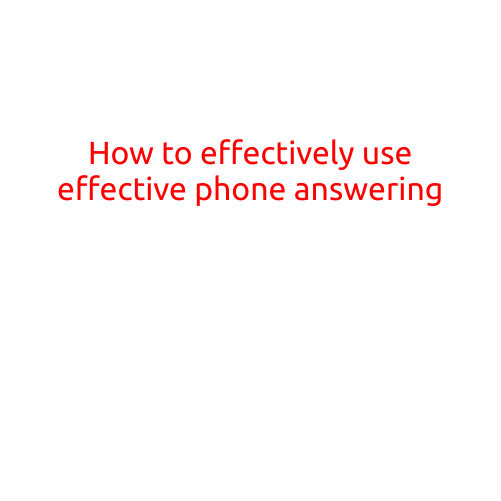
How to Improve Effective Phone Answering
Answering phone calls is a crucial part of any customer-facing business. It’s often the first point of contact between your company and potential customers, and it can make all the difference in determining whether they become loyal customers or simply hang up and take their business elsewhere. In this article, we’ll explore some tips and best practices on how to improve effective phone answering.
Be Prompt
The first thing you need to do is answer the phone promptly. This means picking up the phone within 2-3 rings, max. Delays can give the caller the impression that you’re not interested in their business or that you’re too busy to talk to them. Train your employees to answer the phone with a friendly and professional greeting, such as “Thank you for calling [Your Company Name]. How can I assist you today?”
Use a Clear and Professional Greeting
A clear and professional greeting is essential when answering the phone. Make sure your employees use a respectful tone and speak clearly, avoiding background noise and distractions. A good greeting should include:
- A clear identification of your company
- A warm and friendly tone
- An invitation to the customer to state their business
Use Active Listening Skills
Active listening is critical when answering phone calls. This means paying attention to what the customer is saying, both verbally and non-verbally. Make eye contact if you’re on a video call, and take notes if necessary. Ask clarifying questions to ensure you understand the customer’s issue or inquiry.
Keep it Concise
Keep your responses concise and to the point. Avoid giving lengthy explanations or going on tangents. Instead, focus on providing a clear and concise answer to the customer’s question. This will help you stay focused and ensure that the customer gets the information they need quickly.
Use a Script (Optional)
Using a script can be helpful when answering phone calls, especially for new employees or those with English as a second language. Write a script that includes key phrases and questions, but make sure it’s not too rigid or robotic. Allow for some flexibility so that your employees can still respond naturally and empathetically.
Avoid Transferring Calls
Transferring calls can be frustrating for customers, especially if it’s done unnecessarily or without explaining the purpose of the transfer. Try to handle the customer’s issue or question yourself before transferring them to someone else. If you do need to transfer a call, make sure to:
- Explain the purpose of the transfer
- Provide a brief update on what’s happening
- Get the customer’s consent before transferring the call
Follow-Up
After the call, follow up with the customer to ensure that their issue was resolved to their satisfaction. This can be done via email or phone, and it shows that you value their business and care about their experience.
Conclusion
Answering phone calls effectively requires a combination of skills, including promptness, professionalism, active listening, and concise responses. By following these tips and best practices, you can improve the overall experience for your customers and increase the chances of converting them into loyal customers. Remember to stay focused, empathetic, and proactive, and your phone answering skills will be top-notch.





